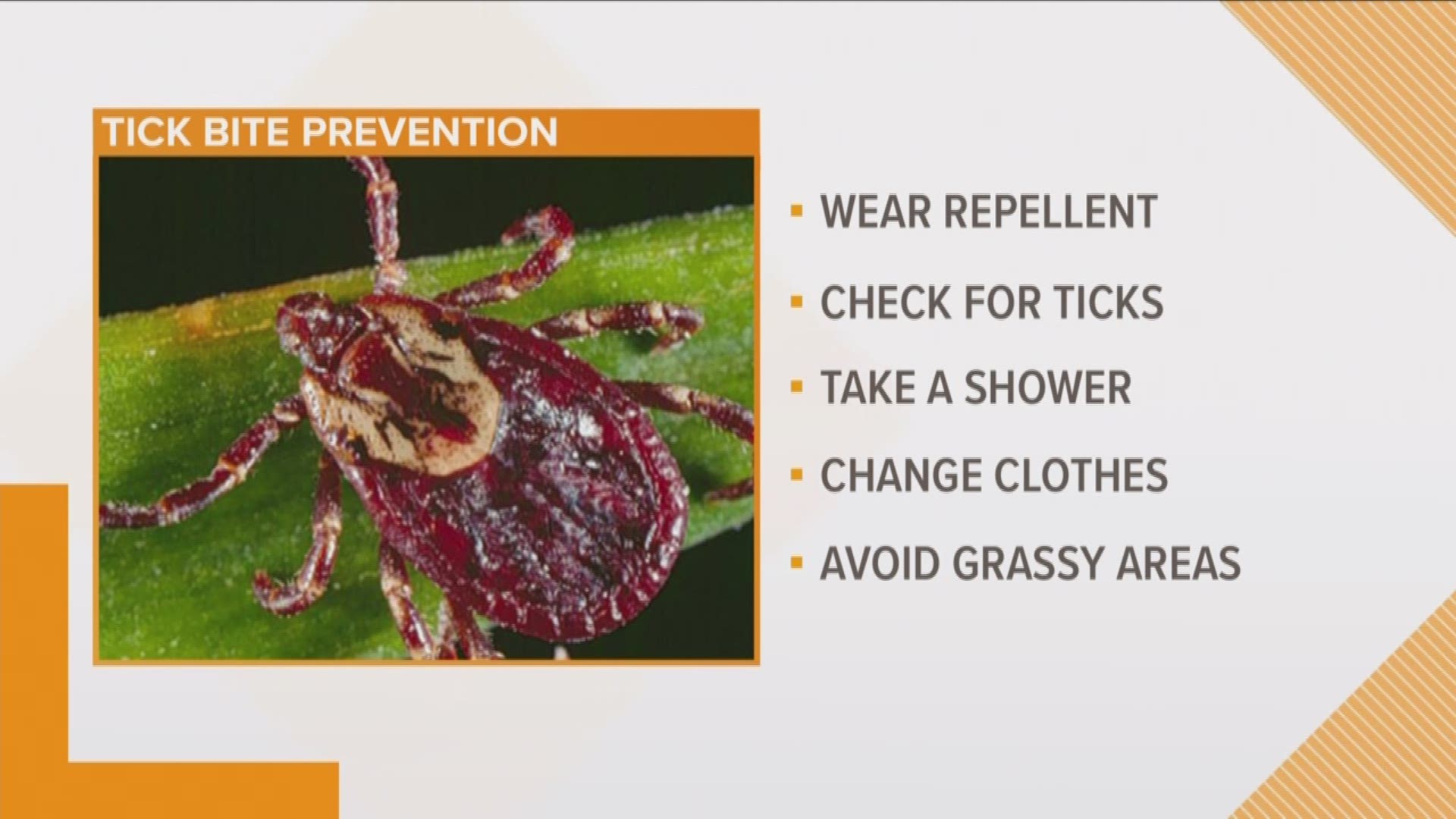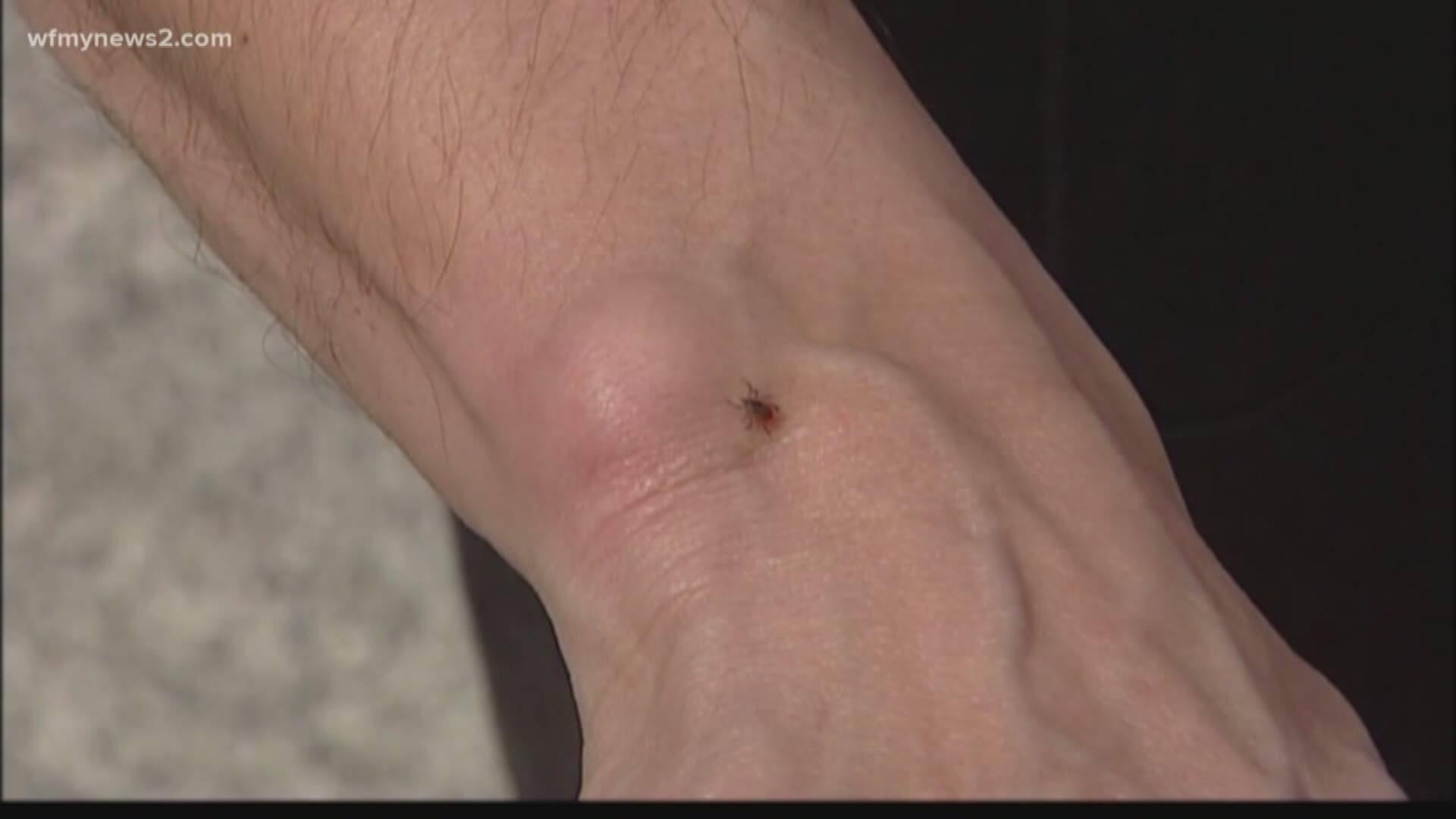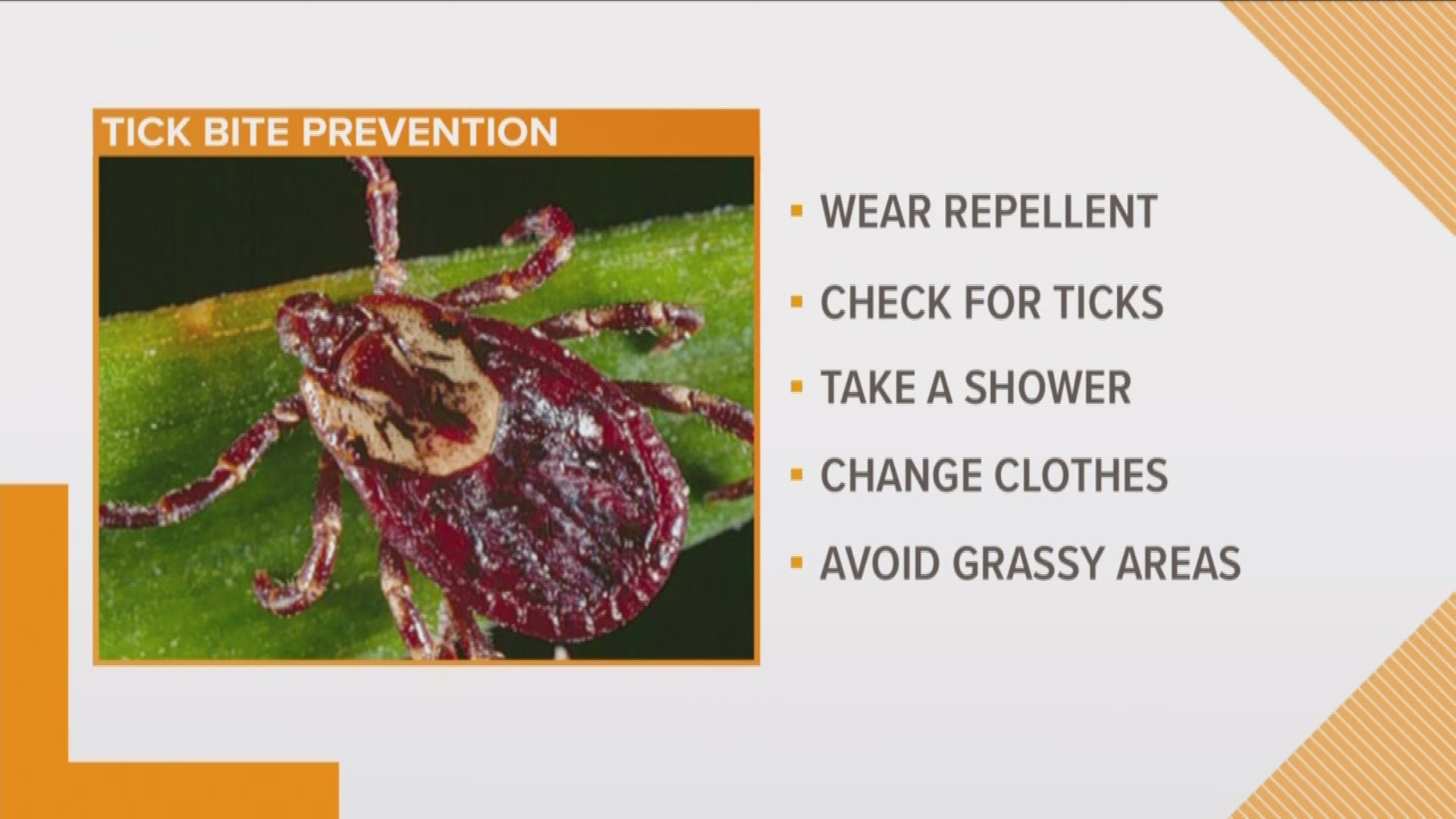GREENSBORO, N.C. - Health officials are urging the public to be on the lookout for ticks as the weather warms up.
Ticks live in grassy, brushy, or wooded areas, or even on animals.
Spending time outside, such as gardening or walking your dog, increases your chances of coming into close contact with ticks.
A recent CDC study shows infections from tick, mosquito, and flea bites more than tripled in the U.S. between 2004 and 2016.
During that time, there were more than 640,000 cases of vector-borne diseases.
Vectors are blood-feeding ticks and insects capable of transmitting diseases between people or animals.
When it comes to ticks, lyme disease is the main concern.
If you have a tick bite followed by a fever or rash, you should seek medical attention immediately.
If lyme is caught early, it can be treated with antibiotics.
But, if it goes untreated, the infection can spread to the joints, heart, and nervous system.
The CDC offers the following tips to help prevent tick bites and tick-borne diseases:
- Wear repellent on your bare skin.
- Check for ticks at the end of each day.
- Take a shower to help wash off the ticks you can't see.
- Change clothes. Don't put on your old clothes that might have ticks still crawling on them.
- Avoid walking through the grass or wooded areas.
For more information about tick bite prevention, click here.





